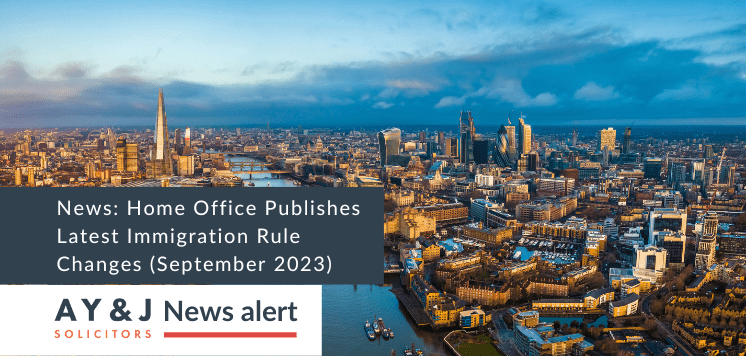On 15th November 2023, the Supreme Court published its long-awaited decision on whether the Home Office’s controversial ‘Rwanda policy’ is lawful and whether the appeal court was right to overturn the decision of the Divisional Court that the policy was, in principle, lawful. In the end, the Supreme Court unanimously agreed that the appeal court had been correct in overturning the decision of the Divisional Court on the basis that the risk of ‘refoulement’ of asylum seekers by the Rwandan authorities would place them at a real risk of ill-treatment. In other words, the Home Office’s flagship Rwanda policy, as it stands, is unlawful.
What is the Home Office’s Rwanda policy?
The Home Office’s so-called ‘Rwanda policy’ is to send those who make an asylum application in the UK to Rwanda, where their claim will be processed and decided upon by the Rwandan authorities. If successful, those individuals will be granted asylum in Rwanda rather than the UK.
The Rwanda policy is part of the government’s plan to prevent migrants arriving in the UK in small boats, typically provided by organised criminal gangs, at enormous risk and cost to those making the journey across the Channel. The Home Office believes that demonstrating that some asylum seekers will be sent to Rwanda and not allowed to stay in the UK will act as a deterrent.
It appears that the Home Office were not greatly confident of success in their appeal. The previous Home Secretary, Suella Braverman, who championed the Rwanda policy, reportedly stated, “If we lose in the supreme court, an outcome that I have consistently argued we must be prepared for, you will have wasted a year and an act of parliament, only to arrive back at square one”.
What did the Supreme Court decide?
The Supreme Court agreed with the decision of the Court of Appeal that the Rwanda policy is unlawful. The conclusion of the Supreme Court states:
“We conclude that the Court of Appeal was correct to reverse the decision of the Divisional Court and was entitled to find that there are substantial grounds for believing that the removal of the claimants to Rwanda would expose them to a real risk of ill-treatment by reason of refoulement. It was accordingly correct to hold that the Secretary of State’s policy is unlawful. The Secretary of State’s appeal is therefore dismissed”.
Why did the Supreme Court agree with the appeal court?
The Supreme Court agreed with the appeal court that asylum seekers sent from the UK would face a genuine risk of ill-treatment due to ‘refoulement’ (i.e. returned to their country of origin). Refoulement is strictly prohibited under several international laws, including the European Convention on Human Rights (ECHR), the UN Refugee Convention, the UN Convention against Torture, and the UN International Covenant on Civil and Political Rights.
What has happened since the Supreme Court decision?
In response to the Supreme Court’s decision, the government announced its intention to:
- A create an international treaty with Rwanda, replacing the existing Memorandum of Understanding (MOU), and
- Draft an emergency bill declaring that Rwanda is safe in order to prevent further challenges from UK courts
There was also a suggestion that the government might try to opt out of the European Convention on Human Rights (ECHR). In recent days, however, it appears that Prime Minister Rishi Sunak has backed down on the idea of opting out of the ECHR, at least for now.
On 5th December 2023, the new Home Secretary announced a new international treaty with the Rwandan government that he says will guarantee the safety of asylum seekers sent to Rwanda from the UK. This new treaty has now been signed between Mr Cleverly and Rwandan Foreign Minister Vincent Biruta. According to a Home Office press release, the newly signed treaty:
- Removes the risk of refoulement – it ensures that people relocated to Rwanda are not at risk of being returned to a country where their life or freedom would be threatened.
- Improves independent monitoring function – this will ensure compliance with the obligations in the treaty, such as reception conditions, processing of asylum claims, and treatment and support for individuals, including up to five years after they have received final determination, and
- Creates a new appeal body – which will further bolster assurances that relocated individuals will not be returned under the treaty
The aim of making the changes to the Rwanda treaty is ultimately to overcome the reasons cited by the Supreme Court that the policy is unlawful. Whether this is possible remains to be seen. On the emergency bill, Lord Sumption stated that any attempt by the government to make Rwanda a “safe” country for asylum seekers would only apply in Britain and would not be recognised internationally. He also pointed towards the likely opposition of the House of Lords to such a bill; “I would have thought it was obvious that the Lord’s is going to be the main focus of opposition, and they may throw it out altogether.”
Ministers have said that they will do “whatever it takes” to stop the deal from being setback by the courts and that they will ensure that the new bill is “legally watertight”. Mr Cleverly has reportedly stated that the bill will come before parliament “soon”. He also told reporters, “We have got an arsenal of responses [to small boats cross the Channel]. We’re pursuing all of them. It is ensuring that there is redundancy in the system”. When asked whether he believes asylum seekers will be sent to Rwanda in the coming months from the UK, he stated, “I can see no reason why that should not happen”.
In breaking news, on 7 December 2023, the immigration minister, Robert Jenrick, resigned from his post. His resignation letter emphatically underlined his position that the government’s current policy measures do not go far enough to ‘stop the boats altogether’.
We will continue to keep you fully up to date with the latest developments on the Home Office’s Rwanda policy and its other key immigration law changes.
A Y & J Solicitors is a specialist immigration law firm with extensive experience with all types of visa applications. We have an in-depth understanding of immigration law and are professional and results-focused. For assistance with your visa application or any other UK immigration law concerns, please contact us on +44 20 7404 7933 or contact us today. We’re here to help!









